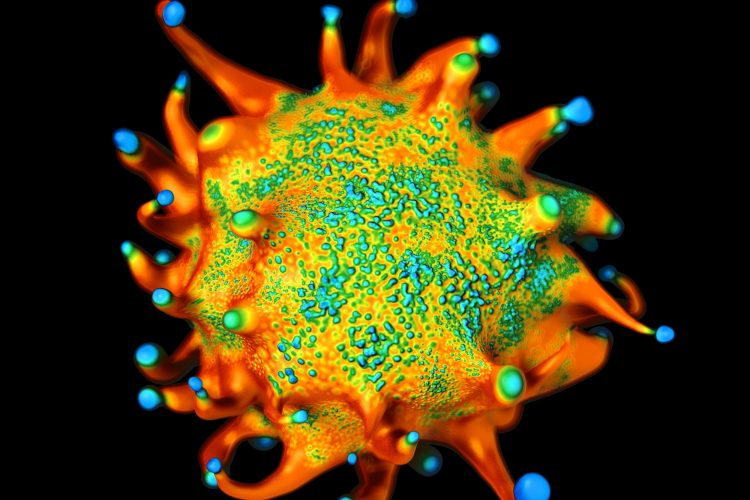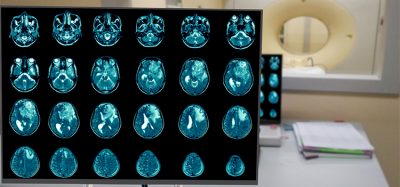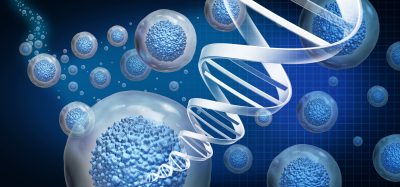HDAC3 inhibitors: a potential treatment for non-Hodgkin lymphomas?
Posted: 9 January 2020 | Hannah Balfour (Drug Target Review) | No comments yet
A murine study found histone deacetylase 3 (HDAC3) inhibitors reverse epigenetic changes caused by CREBBP mutations found in lymphomas and could be developed into a novel therapy.


A study has identified histone deacetylase 3 (HDAC3) inhibitors are a possible novel therapy for both follicular lymphoma and diffuse large B-cell lymphomas (DLBCL) with cAMP-response element binding protein (CREBBP) mutations.
…the research team showed that HDAC3 selective inhibitors reverse aberrant epigenetic programming caused by CREBBP”
Researchers from the University of Texas MD Anderson Cancer Center, US, worked from previous research showing CREBBP mutations are common in both follicular lymphoma and DLBCL. CREBBP encodes a protein that alters the expression of genes by modifying the histone proteins around which DNA is wrapped.
“CREBBP mutations are highly recurrent in B-cell lymphomas and either inactivate its histone acetyltransferase (HAT) domain or truncate the protein,” said Dr Michael Green, assistant professor of Lymphoma and Myeloma at MD Anderson.” We showed that these two classes of mutations yield different degrees of disruption of the epigenome, with HAT mutations being more severe and associated with inferior clinical outcome.”
Biomarkers are redefining how precision therapies are discovered, validated and delivered.
This exclusive expert-led report reveals how leading teams are using biomarker science to drive faster insights, cleaner data and more targeted treatments – from discovery to diagnostics.
Inside the report:
- How leading organisations are reshaping strategy with biomarker-led approaches
- Better tools for real-time decision-making – turning complex data into faster insights
- Global standardisation and assay sensitivity – what it takes to scale across networks
Discover how biomarker science is addressing the biggest hurdles in drug discovery, translational research and precision medicine – access your free copy today
Using CRISPR-Cas9 gene editing in murine models, the research team showed that HDAC3 selective inhibitors reverse aberrant epigenetic programming caused by CREBBP, inhibiting the growth of lymphoma cells and restoring immune cancer surveillance.
“Our study characterised the molecular consequences of CREBBP mutations and identified key cellular pathways silenced as a result of unopposed HDAC3 activity,” said Green. “We demonstrated how inhibition of HDAC3 restores these pathways, suppressing growth and most critically enabling T cells to recognise and kill lymphoma cells.”
The research, published in Cancer Discovery, suggests that HDAC3 inhibitors affect the expression of major histocompatibility molecular class II (MHC class II). MHC class II molecules are antigen presentation proteins, crucial for initiating adaptive immune responses.
“The frequency of MHC class II loss in DLBCL exceeds the frequency of CREBBP mutations in this disease through unknown mechanisms,” said Green. “The ability of HDAC3 inhibition to induce MHC class II expression may have potentially broad implications for immunotherapy. We believe that inhibition of HDAC3 represents a novel mechanism-based immune-epigenetic therapy for CREBBP- mutant lymphomas.”
Related topics
Disease Research, Drug Development, Drug Targets, Epigenetics, Immuno-oncology, Immunotherapy, Oncology, Research & Development, Therapeutics
Related conditions
Diffuse large B-cell lymphomas (DLBCL), follicular lymphoma, Non-Hodgkin's Lymphoma
Related organisations
The University of Texas MD Anderson Cancer Center
Related people
Dr Michael Green








